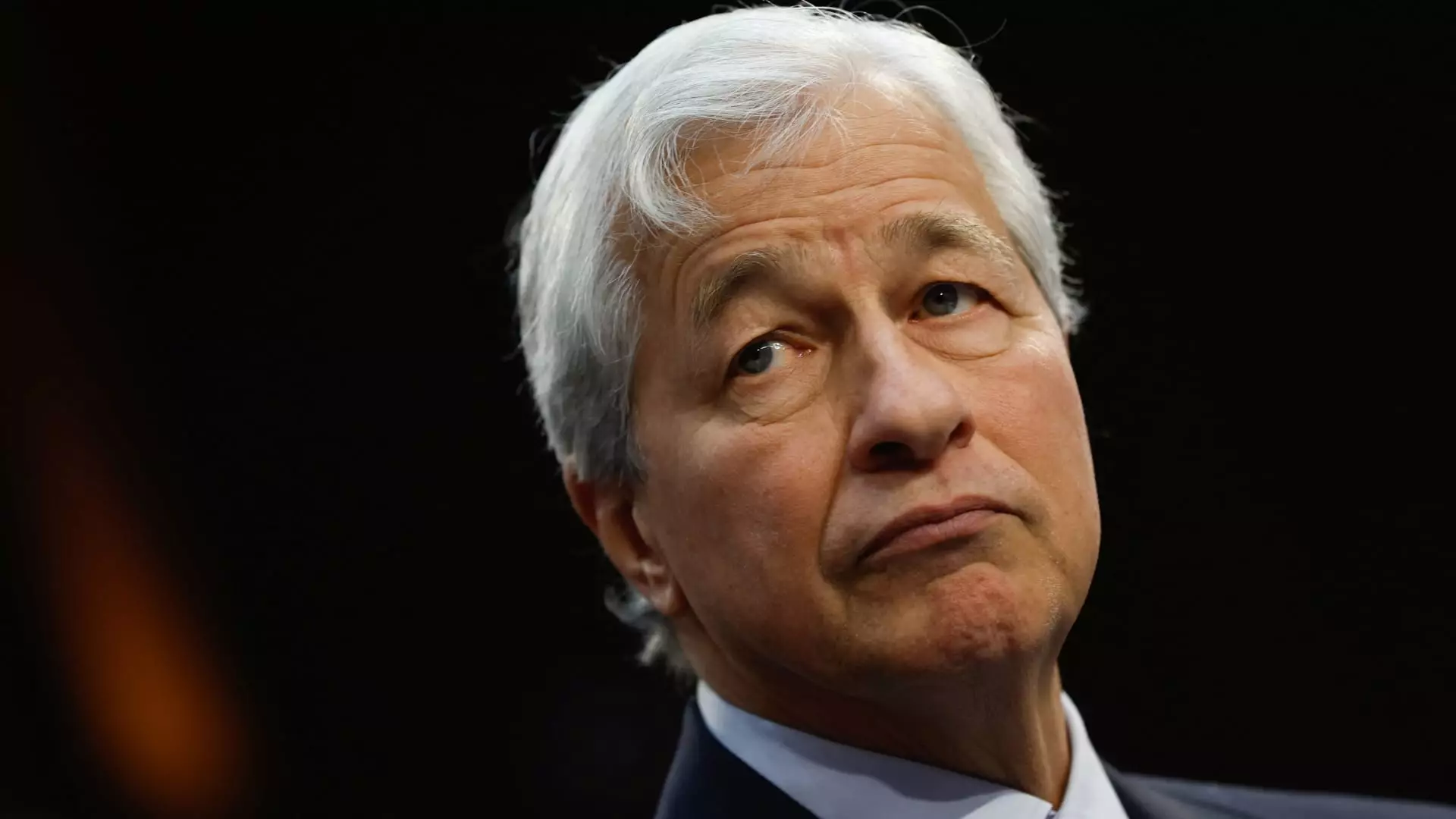In a world where political tensions run high and conflicts seem endless, Jamie Dimon, the CEO of JPMorgan Chase, has unmistakably raised a red flag regarding the escalating geopolitical risks. As he noted in recent earnings statements, the array of issues we face today—from ongoing hostilities in the Middle East to the unabated ramifications of Russia’s invasion of Ukraine—creates a landscape fraught with uncertainty. Analysts and investors alike should heed Dimon’s concerns about human suffering and historical implications, which transcend standard financial metrics.
The Fragility of International Order
Dimon’s remarks indicate a profound disruption in the global equilibrium established post-World War II. The multi-faceted nature of this unrest, punctuated by U.S.-China tensions and evidently risky behaviors from nations like Iran and North Korea, raises legitimate doubts about the future stability of international relations. His emphasis on “nuclear blackmail” is not simply hyperbolic rhetoric; it signals an urgent need for strong, coordinated leadership among global powers. Neglecting this call to action may result in catastrophic consequences not just for specific nations but for global trade and economic stability.
The ongoing conflict between Israel and Hamas has spiraled into a humanitarian crisis with devastating consequences. The conflict’s one-year anniversary serves as a grim reminder of how quickly situations can deteriorate. With tens of thousands dead and violence spreading to neighboring regions, including incidents involving Iranian forces and Hezbollah, the potential for further escalation remains daunting. Dimon’s reference to the Israeli airstrikes and Iran’s missile launches highlights the interconnectedness of regional dynamics, where one act can lead to multi-national repercussions.
On the European front, the Russian government’s decision to increase defense spending by 25% signals a clear intent to continue its military operations in Ukraine. This action not only underscores Russia’s commitment to its objectives but also sets the stage for ongoing tensions in Europe. The implications of this are vast, particularly for European economies that are still grappling with the inflationary impacts of a protracted war. Dimon’s commentary suggests a cautious outlook on the global economy, warning that while some indicators look promising, significant structural issues linger.
In terms of macroeconomic sentiment, Dimon cautions that the outlook remains cloudy despite efforts by the Federal Reserve to engineer a “soft landing” for the U.S. economy. His focus on issues such as fiscal deficits and infrastructure needs resonates with many financial experts who fear these challenges could result in long-term stagnation. The interplay of remilitarization and global trade restructuring adds layers of complexity to what many presumed was a straightforward recovery from pandemic-related economic disruptions.
Given the depth and breadth of issues outlined by Dimon, the discourse surrounding global economic and political stability must not be overlooked. As risks mount, there’s a pressing need for not just dialogue but decisive action. Effective leadership is paramount in navigating such turbulent waters. Stakeholders, from policymakers to financial experts, must embrace this challenge if we are to avert the far-reaching consequences of a fractured world order. The ramifications of inaction could reverberate well beyond geopolitical boundaries, ultimately affecting every segment of global society.

